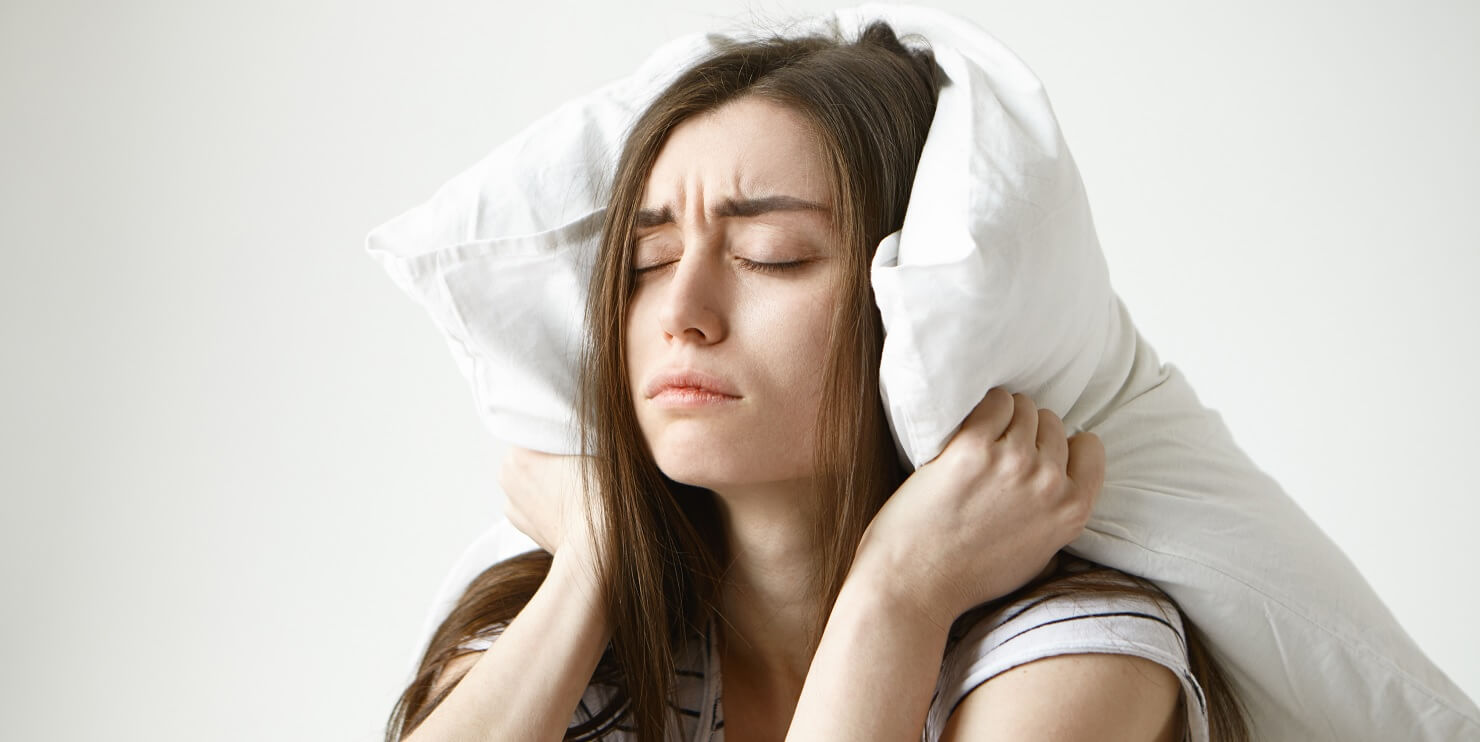If you've experienced waking up in a bad mood or a wrong position with various pains, you know how it ruins your day. However, when we talk about something more serious and long-term, like a sleep disorder, it affects a person's life. Sleep is a critical part of the well-being of every organism and person, and any disorder with sleep itself means severe issues for one's health. That is why high-quality sleep is essential for good health, and without proper sleep, everything falls apart from your health to your lifestyle.
Things are even more sensitive in the current pandemic situation when we talk about sleep and health disorders. While everyone is struggling to keep themselves safe and healthy, sleep can often take a massive hit. People worldwide are losing sleep (literally) because of anxiety, depression because of loss or lifestyle issues, health disorders, and other activities.
The world hasn't faced such a health crisis in over a century, and we can improve it by taking care of our health as best as possible. The first step is lifestyle changes, and the second step is to keep yourself mentally and physically healthy with high-quality sleep. There are different kinds of sleep disorders that range from both mental to physical.
To understand how sleep disorders disrupt a person's life, we need to understand what goes on and what one can do to prevent or improve the situation:
Different sleep disorders and their consequences on a person's life:
Sleep disorders or any condition, physical or mental, long-term or short-term, are debilitating in different ways. Sleep is the phase of your biological cycle when your body does its 'repair' work and relaxes, and any hindrance in the same has different effects depending upon the condition. Here is how sleep disorders affect your sleep and day lifestyle:
- Insomnia: When a person is unable to sleep for various reasons, be it stress, depression or mental issues, or physical such as hormonal imbalances, it is known as insomnia. Insomnia impacts a person's lifestyle in small ways in the initial phases but can progress and lead to a domino effect of health issues later if left untreated. All the sleep disorders mentioned below, like night, walking, sleep apnea, restless leg syndrome, narcolepsy, can be consequences and causes of this condition.
Insomnia can happen to anyone with a generally stressful or imbalanced lifestyle or a history of medical conditions. The worst part about insomnia is that it affects people in ways that need work, similar to getting out of depression. It can make one more irritable, lead to weight gain, inability to stay focused on work, depression, and even immunity lapses.
A person can have both short-term and long-term insomnia, and they affect in similar ways, although long-term insomnia leads to severe problems. Short-term insomnia would lead to sleep debt, lower immunity and inability to focus, and short-term physical and mental issues. Long-term insomnia would be much more dangerous to a person's life as it would lead to short-term insomnia issues. It leads to chronic issues with your immunity, weight imbalance, and related issues, diabetes, depression, anxiety, and other health crises.
- Parasomnias: Parasomnias are sleep disorders that happen or trigger when you go to sleep. These issues influence your sleep quality and shape how you perceive sleep, and your body feels in the day. Here is how different parasomnias affect your life:
a. Sleepwalking: Sleepwalking is usually common in children or early teenagers and can lead to injuries. However, some adults may still have this condition from their childhood years and can end up waking up confused and anxious. Sleepwalking in adults leads to lethargy, confusion, and inadequate sleep, affecting everyone in different ways.
b. Night terrors: Night terrors is another example of parasomnia common in children. In night terror episodes, people wake up screaming or shouting continuously for up to 30 minutes. While night terrors may lead to the child screaming, the stress can mount up and lead to being afraid of going to sleep. An adult may have a night terror episode too, but it is uncommon. However, night terrors can frighten the parent more so than the child, and regular night terrors need to be looked into by a doctor. The child or adult may not remember the night terror episode of waking up but may remember the dream/nightmare they had. Moreover, night terrors are induced in people with frequent nightmares that affect one's sleep quality and may cause an inability to stay asleep after waking up.
c. Talking in sleep: Some people may talk in sleep, and it can cause one's throat to dry up as they're doing it unconsciously. Sleep-talking is a severe issue, especially if one has been doing it for years without treatment, and can be a sleep-deterrent for their partners. Talking in sleep may be both grumbling, short sentences, or complete sentences. It is a short-term issue that can cause confusion and agitation if disrupted and can affect partners' bedroom lives.
- Sleep Apnea: Sleep Apnea is the most severe form of sleep disorder that affects one's lifestyle in the most brutal ways possible. It leads to other issues like narcolepsy and even severe medical issues. It is especially dangerous and common in obese people as it leads to the collapse or excessive relaxation of the windpipe in one's sleep without any warning.
The blood oxygen dips and can lead to cardiac arrest, waking up out of breath, or even death in extreme cases. Sleep Apnea is one sleep disorder that leads to excessive stress, lethargy, sleep debt, and a cascade of health and sleeps issues. People diagnosed with either form of sleep apnea (central or obstructive) may need treatment and the use of a CPAP machine before sleeping, which can be uncomfortable to sleep with. Moreover, sleep apnea is usually a condition that activates or triggers people who snore excessively and can be bad for the partner. Waking up to see yourself or your partner gasping for breath isn't good for anyone's health and can lead to various medical conditions- both physical and mental. In the current pandemic, one should be extra careful, as sleep apnea and infection can lead to severe blood oxygen dips resulting in hospitalization.
Preventing and taking care of sleep disorders from disrupting your life:
Nearly every health crisis has a cure or tips for maintaining or reducing symptoms' severity. The same applies to sleep disorders, except you can also prevent them from occurring in the first place. Lifestyle changes and mindful living can go a long way if you love to sleep in peace. You can improve your lifestyle and work to get better quality sleep by living and sleeping better. Here are some tips for maintaining a healthy sleep-wake life cycle:
- Contact a doctor: Everything smarts out small before it gets bigger and out of control. If you see yourself having any of the symptoms of sleep disorders mentioned above or other issues, contact your doctor. You shouldn't wait to contact your doctor if you have complaints from your partner about how your sleep or lifestyle affects everyone, including you. Sleep is crucial for your waking life, and even ignoring snoring can lead to deadly sleep disorders like sleep apnea. That is why, if you have any short-term parasomnia or chronic issues, you're afraid to visit the doctor for any reason should be checked out before it increases in severity.
- Exercise: Exercise is one of the most lifestyle changes that keep diseases at bay. Most diseases start as lifestyle diseases and minor signs that later aggravate and become severe or chronic. Integrating exercise in your daily life is one sure-fire way to keep your body in shape. It keeps you away from being in any condition like being overweight, obese, or having a high blood sugar that invites other diseases and lowers the quality of your life. Exercise offers more benefits for your body than one can list in short, but it is one of the best ways to treat any disease coming out of a lifestyle or sleep disorder. Moreover, exercise is good for your sleep as it regulates your hormones and keeps your metabolism active to allow you to get high-quality undisturbed sleep.
- Leave caffeine and hard liquor to early evenings: Are you one of the vast majority of people who prefer a sip of coffee after returning from work or finishing work in the late evenings? If yes, it might be one of the leading causes of not getting proper sleep or attracting sleep disorders. The same scenario applies to hard liquor, as drinks like this close to bedtime (late evening or late night) activate your nervous and digestive system while elevating your heart rate. In short, you're activating your entire body for several hours, especially when it's time to go to sleep and unwind. Cold beverages, or hard liquor, don't help calm your nerves but have the opposite effect and are sustained as lifestyle damage your liver. If you want to go for a beverage before sleep or after work, go for chamomile tea, green tea, or a glass of simple warm milk that helps keep you full and calm.
- Look into pillows or mattresses that aid your sleep: Is your pillow or mattress supporting and adequately aligning your head and shoulders? Or your mattress offering a healthy balance of comfort and support? If not, issues like snoring, sleep apnea, and other sleep disorders necessitate the use of a calming and comforting sleeping environment. These sleep tools help relax your body and offer perfect sleeping temperature and overall conditions. High-quality sleep is the antidote to sleep disorders, and anything that aids you in your sleeping attempt or environment is just as effective (or more) than lifestyle changes.
- Keep screens and work away from sleep: Your work may be one of the main things that could be adding stress to your life. Stress leads to a variety of health issues, especially sleep. And one of the best ways to keep stress away from your life is as simple as ditching electronics and achieving a proper work-life balance to aid your sleep. The blue spectrum from your laptop, TV, or smartphone keeps your mind activated long after you ditch them. And using them as the last resort of comfort before sleep is counterproductive in the long run. If you're conscious about your sleep as much as you're worried about health and work, the last few hours of your day could use the time away from screens unless it is for personal and work emergencies (not daily).
- Temperature regulation: Room temperature and sleep environment (bed/mattress temperature) are critical to your sleep. While a cold bed can heat up over time using blankets and mattress toppers, a bed that is hot for you has no remedy. Overheating, excessive sweating, and waking up in the middle of the night because of temperature issues mean poor sleep quality. While heat isn't a contributor to any sleep disorder directly, it can lead to insomnia or nightmares if your room doesn't have good ventilation and the sleep environment lacks temperature regulation.
Conclusion:
Sleep disorders need a corrective diagnosis as soon as you start feeling the symptoms persist. They can lead to poor physical and mental health and invite all other diseases like a domino effect if left unchecked. If you feel how, your sleep seriously impacts your life or habits, it is time to see a doctor or elevate your sleeping environment to boost your sleep quality. While one can always go for medicines and correction, lifestyle changes are the best to prevent sleep disorders, similar to any other health crisis. Sleep disorders shouldn't be taken lightly, and if you or your partner is unable to sleep quietly for any reason, it is time to look into options.






